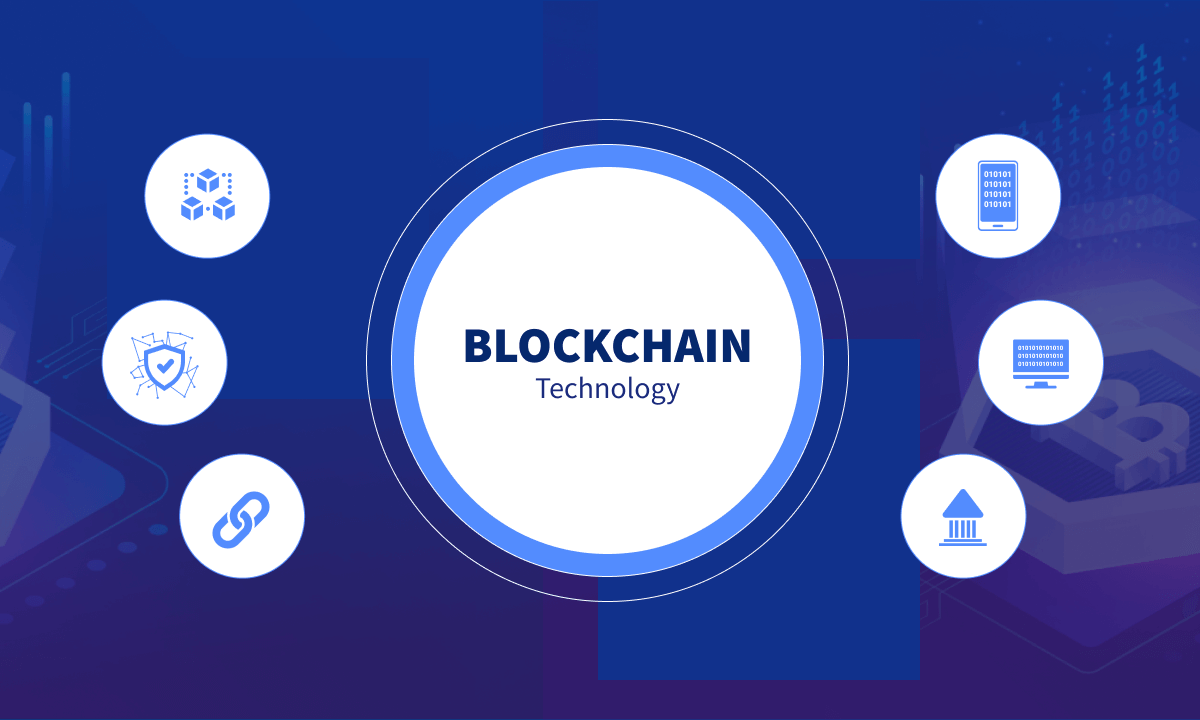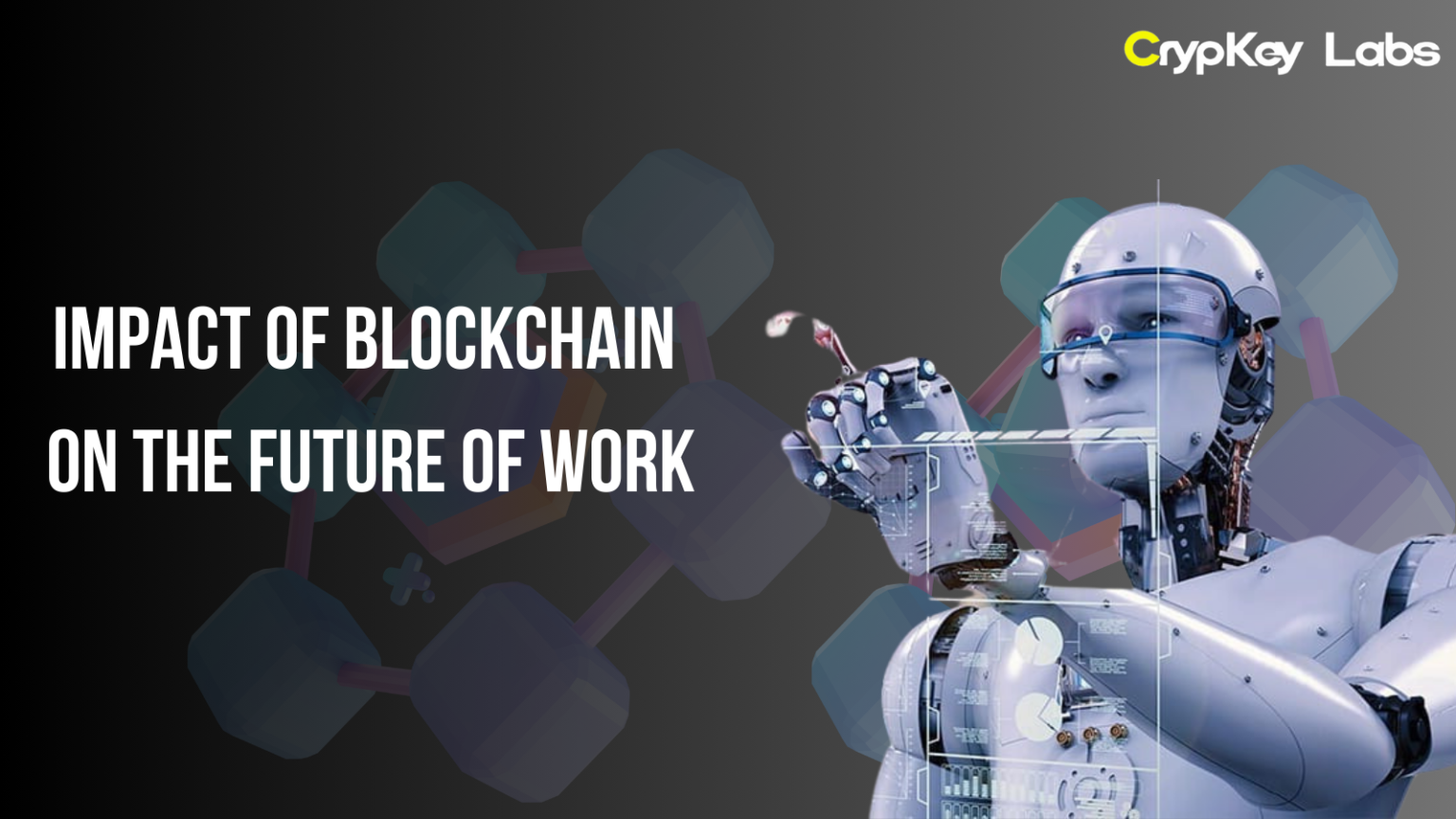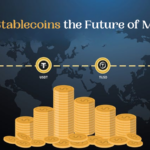The world of work is evolving at a breakneck pace, thanks to technological advancements, and one of the most promising innovations shaping this transformation is blockchain. You might associate blockchain primarily with cryptocurrencies like Bitcoin, but its applications extend far beyond digital currencies. So, what exactly is blockchain, and how is it poised to change the future of work? Let’s dive into this exciting topic!
Understanding Blockchain Technology
What is Blockchain?
At its core, blockchain is a decentralized and distributed digital ledger technology. This means that instead of relying on a central authority to record transactions (like a bank or government), blockchain allows multiple participants to maintain their own copies of the same data. Each “block” of data is linked to the previous one, forming a “chain” of information that is secure and immutable.
Core Principles of Blockchain
Decentralization: Traditional systems typically rely on a central point of control, making them susceptible to failures and fraud. Blockchain eliminates this single point of failure, distributing control among all users in the network.
Transparency: Transactions recorded on a blockchain are visible to all participants, promoting accountability and trust. Everyone can verify transactions, which is a game-changer for industries that rely on trust.
Security: Blockchain uses cryptographic techniques to secure data, making it nearly impossible to alter or hack. Once a transaction is recorded, it’s permanent and tamper-proof.
Key Components of Blockchain
- Smart Contracts: These are self-executing contracts with the terms of the agreement directly written into code. They automatically enforce and execute the contract terms without intermediaries.
- Tokens: In a blockchain context, tokens can represent various assets, including currency, property, or even voting rights within a decentralized organization.
The Evolution of Work
Traditional Employment Models
Historically, employment has been characterized by structured environments—think 9-to-5 office jobs with a clear hierarchy and defined roles. This model worked for a long time, but technological advancements began to disrupt it.
Changes Brought About by Technology
Remote Work
The rise of the internet and digital communication tools paved the way for remote work, allowing employees to perform their tasks from anywhere in the world. This shift has become even more pronounced since the COVID-19 pandemic, with many companies adopting hybrid work models.
Gig Economy
Platforms like Uber, Fiverr, and Upwork have facilitated the growth of the gig economy, where individuals can offer their skills on a project-by-project basis rather than committing to full-time employment. This flexibility is appealing to many workers, especially millennials and Gen Z.
Digital Collaboration Tools
Tools like Slack, Zoom, and Trello have transformed how teams communicate and collaborate. These platforms allow for seamless information sharing, enabling teams to work together, regardless of their physical location.
Blockchain’s Role in Shaping the Future of Work
Decentralized Work Platforms
One of the most significant impacts of blockchain on work is the creation of decentralized platforms. Traditional job markets often require intermediaries, such as job boards or recruitment agencies, to connect employers and employees. Blockchain enables peer-to-peer interactions, allowing individuals to transact directly without intermediaries.
Imagine a world where freelancers can connect with clients directly through a blockchain-based platform. They can negotiate terms, execute smart contracts, and receive payment—all without worrying about hefty fees charged by intermediaries. This not only lowers costs but also gives workers more control over their income.
Enhanced Security and Trust
In the workplace, trust is crucial. Employees need to trust their employers, and employers need to trust their employees. Blockchain enhances this trust by providing secure and transparent records of transactions, work history, and credentials.
For example, a hiring manager can verify a candidate’s credentials and work history on a blockchain. This eliminates the need for background checks, saving time and reducing the potential for fraud. Additionally, the transparency of blockchain allows for accountability, as all transactions are recorded and can be audited.
Smart Contracts and Automation
Smart contracts are one of the most exciting applications of blockchain technology in the workplace. These self-executing contracts automate processes, reducing the need for manual oversight and administrative work.
For instance, in a freelance scenario, a smart contract could automatically release payment once a project is completed and approved by the client. This ensures that both parties fulfill their obligations without the need for intermediaries, reducing the risk of disputes.
Benefits of Blockchain in the Workplace
Improved Efficiency
By streamlining processes and automating tasks, blockchain can significantly improve efficiency in the workplace. Transactions that traditionally took days or weeks can be completed in minutes. This allows businesses to focus on their core operations rather than getting bogged down by administrative tasks.
Increased Transparency
With blockchain, every transaction is recorded in a public ledger that all participants can access. This transparency promotes accountability and trust, as employees can easily track their contributions and employers can verify compliance with contracts and agreements.
Enhanced Employee Empowerment
Blockchain also empowers employees by giving them ownership of their data and credentials. Instead of relying on centralized entities to verify their skills and work history, individuals can maintain their own records on a blockchain. This democratizes access to information and helps workers showcase their abilities more effectively.
Challenges and Limitations
Regulatory Concerns
While blockchain has enormous potential, it also faces regulatory hurdles. Governments around the world are still figuring out how to regulate this new technology, leading to uncertainty for businesses and individuals alike. Compliance with local laws and regulations can be complicated, especially in different jurisdictions.
Scalability Issues
As blockchain networks grow, they can face scalability challenges. High transaction volumes can lead to congestion and slow processing times. Solutions like layer-2 scaling and sharding are being developed, but they are still in their infancy.
Resistance to Change and Adoption Barriers
Many businesses are resistant to change, especially when it comes to adopting new technologies. There may be a lack of understanding or fear of the unknown. Education and awareness campaigns are essential to help organizations recognize the benefits of blockchain.
Skills Gap and Need for Education
The rise of blockchain technology necessitates a new set of skills in the workforce. Unfortunately, there is currently a skills gap, with many professionals lacking the knowledge and expertise to navigate blockchain. Education and training programs will be crucial in preparing the workforce for this new landscape.
Applications and Case Studies
Successful Decentralized Organizations
Decentralized Autonomous Organizations (DAOs) are organizations governed by smart contracts on the blockchain. They allow for transparent decision-making and participation from all members. MakerDAO, for instance, is a well-known example of a DAO that governs the DAI stablecoin, enabling users to vote on key decisions.
Blockchain in Remote Work and Gig Economy Platforms
Platforms like Holochain and Origin Protocol are creating decentralized marketplaces for freelancers and gig workers, enabling them to connect with clients directly and receive payments securely.
The Future Outlook
Predictions for Blockchain’s Impact on Various Industries
As blockchain technology matures, its impact will be felt across a wide range of industries, including finance, healthcare, logistics, and real estate. We can expect to see more organizations adopting blockchain to improve efficiency and transparency in their operations.
The Role of Government and Institutions
Governments and regulatory bodies will play a critical role in shaping the future of blockchain in the workplace. By developing clear regulations and frameworks, they can foster innovation while ensuring consumer protection and financial stability.
Long-Term Changes in Employment Models and Workplace Dynamics
As blockchain becomes more integrated into the workplace, we can anticipate significant shifts in employment models. The traditional 9-to-5 office job may become less common as decentralized work becomes the norm. This shift will lead to increased flexibility, collaboration, and diversity in the workforce.
Conclusion
Blockchain technology has the potential to revolutionize the future of work by enhancing efficiency, transparency, and trust in the workplace. While challenges remain, the benefits far outweigh the drawbacks. As we embrace this technology, businesses and individuals alike must stay informed and adaptable to thrive in this evolving landscape.
So, are you ready to embrace the future of work with blockchain? The possibilities are endless, and the time to act is now!







